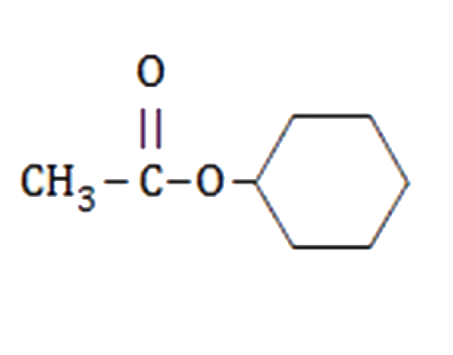Which of the following is most reactive towards hydrolysis:-
CH2=CH−Cl
CH2=CH−CH2−Cl
C6H5Cl
C6H5CH2Cl
The correct Answer is:D
To determine which compound is most reactive towards hydrolysis, we need to analyze the stability of the carbocation that forms during the hydrolysis reaction. Hydrolysis of alkyl halides typically follows an SN1 mechanism, where the rate of reaction is directly proportional to the stability of the carbocation formed in the rate-determining step (RDS).
1. Understand the Hydrolysis Mechanism:
- Hydrolysis of alkyl halides can occur via two mechanisms: SN1 and SN2. In this case, we focus on the SN1 mechanism, which involves the formation of a carbocation intermediate.
2. Identify the Compounds:
- List the compounds given in the question (though they are not provided here, we assume there are several alkyl halides to consider).
3. Determine Carbocation Formation:
- For each compound, identify where the carbocation would form after the leaving group (halide) departs. The stability of this carbocation will dictate the reactivity towards hydrolysis.
4. Evaluate Carbocation Stability:
- Carbocations can be classified based on their stability:
- Tertiary (3°) carbocations are the most stable due to hyperconjugation and inductive effects.
- Secondary (2°) carbocations are moderately stable.
- Primary (1°) carbocations are less stable.
- Methyl carbocations are the least stable.
- Additionally, resonance can significantly increase carbocation stability. For example, a benzylic carbocation (like in phenylmethanol, PHCH2) can stabilize through resonance with the aromatic ring.
5. Compare the Stability:
- Compare the stability of the carbocations formed from each compound. The compound that forms the most stable carbocation will be the most reactive towards hydrolysis.
6. Conclusion:
- Based on the analysis, the compound that forms the most stable carbocation (in this case, PHCH2 due to resonance stabilization) is the most reactive towards hydrolysis. Therefore, the correct answer is Option 4.
- Hydrolysis of alkyl halides can occur via two mechanisms: SN1 and SN2. In this case, we focus on the SN1 mechanism, which involves the formation of a carbocation intermediate.
- List the compounds given in the question (though they are not provided here, we assume there are several alkyl halides to consider).
- For each compound, identify where the carbocation would form after the leaving group (halide) departs. The stability of this carbocation will dictate the reactivity towards hydrolysis.
- Carbocations can be classified based on their stability:
- Tertiary (3°) carbocations are the most stable due to hyperconjugation and inductive effects.
- Secondary (2°) carbocations are moderately stable.
- Primary (1°) carbocations are less stable.
- Methyl carbocations are the least stable.
- Additionally, resonance can significantly increase carbocation stability. For example, a benzylic carbocation (like in phenylmethanol, PHCH2) can stabilize through resonance with the aromatic ring.
- Compare the stability of the carbocations formed from each compound. The compound that forms the most stable carbocation will be the most reactive towards hydrolysis.
- Based on the analysis, the compound that forms the most stable carbocation (in this case, PHCH2 due to resonance stabilization) is the most reactive towards hydrolysis. Therefore, the correct answer is Option 4.
Similar Questions
Knowledge Check
- Question 1 - Select One
Which of the following is most reactive toward Hydrolysis ?
ACH3−O∣∣C−NH2BCH3−O∣∣C−ClCCH3−O∣∣C−O−O∣∣C−CH3DCH3−O∣∣C−O−Et - Question 2 - Select One
Which of the following is least reactive towards hydrolysis?
A BCH2=CH−CH2−ClC(CH3)3CClDPh−CH2−Cl
BCH2=CH−CH2−ClC(CH3)3CClDPh−CH2−Cl - Question 3 - Select One
Which of the following is most reactive for hydrolysis ?
ACH3−O∣∣C−O−CH3BCH3−O∣∣C−O−CH∣CH3−CH3CCH3−O∣∣C−O−CH3∣C∣CH3−CH3D
Which of the following is most reactive toward SNAr :
View SolutionWhich of the following is most reactive towards dihydrogen ?
View SolutionWhich of the following is most reactive towards electrophilic nitration ?
View SolutionWhich of the following is most reactive towards electrophilic substituion reaction ?
View SolutionWhich of the following is most reactive toward SNAr?
View Solution

